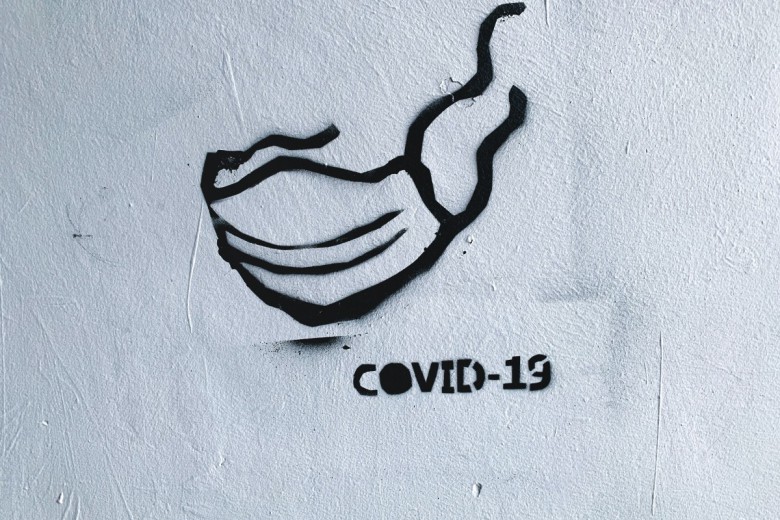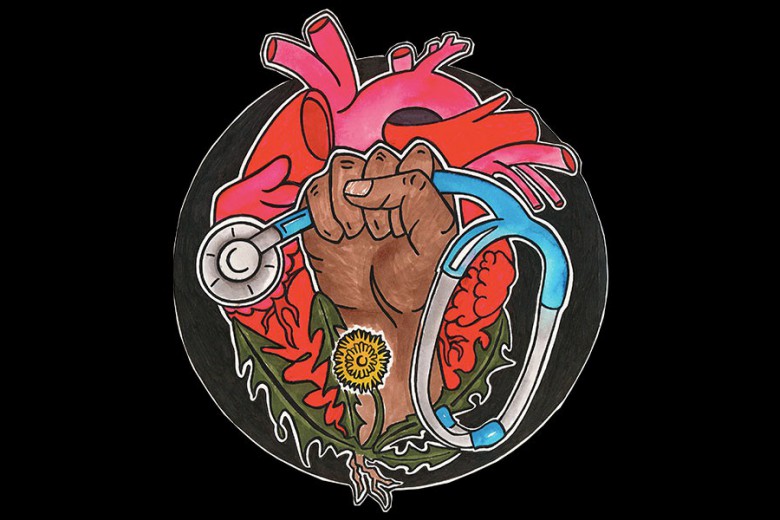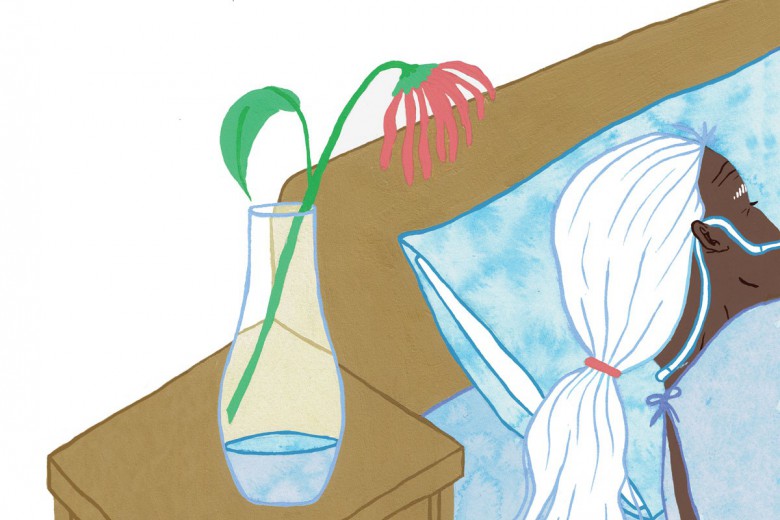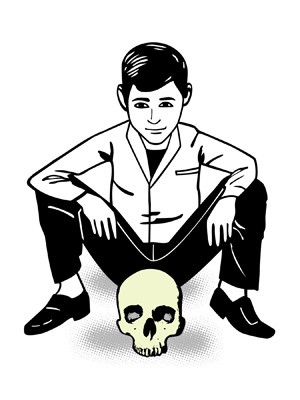
Men’s social conditioning takes a tremendous toll on not just their relationships, but also on their health. Those who want this to change, Calvin Sandborn argues, will have to come to terms with the concept of patriarchy-and with their own emotions.
Have compassion for modern man.
With only one life to live, he cannot feel it. A chunk of his heart has been cut away. As he confronts life’s inevitable shocks, he can not feel his heart’s response. He can conjure anger, but is blind to his own sorrow and fear. He seldom feels joy. He is the Great Pretender. Embarrassed by his feelings, he presents a mask to the world-a stoic mask of what a man should be. He takes the secret of his tender self to the grave.
Intimacy is beyond his ken. Though surrounded by people, he is lonely.
Yet he strives to love in the only way he knows. Keenly aware of duty and obligation, he strives to be a good provider and protector. He drives himself, he performs, he achieves.
He believes that he must be a hero. He competes to be the best stud, husband and father; to have the biggest house and lowest golf score; to have the prettiest wife, finest career, smartest kids and flashiest car. He believes that the whole world is divided into winners and losers-and that if he loses he will be worthless. So he won’t give himself a break.
Indeed, the cost of traditional masculinity is high. It destroys our health and our hearts:
- The life span of the average man is approximately six years shorter than that of the average woman.
- Men commit suicide at a rate four times that of women.
- Two thirds of all alcoholics are men, and 80 per cent of those with alcohol-induced liver disease are men.
- Virtually all stress-related diseases, from hypertension to heart disease, are more common in men than in women.
- Men’s heart disease and cardiovascular disease death rates are about twice as high as women’s, prior to old age.
- Twice as many men die from accidents as women, and three times as many die from homicides-usually at the hands of other men.
- Being male is the single largest risk factor for early death. Before age 50, for every 10 premature female deaths, 16 men die prematurely. If male death rates dropped to the female rate, one third of all male deaths under age 50 would not take place.
What is the reason for this pattern of ill health? A big part of it is the traditional masculine role that men assume, and the way men are taught to deal with feelings. We’re trained to react to emotional stress in a way that creates significant health risks. As a result, men are far more likely to have premature heart attacks. In addition, macho culture encourages men to turn uncomfortable feelings into anger, which swells the number of men felled by accidents, homicides, suicides and heart attacks. The male ritual of using alcohol and drugs to drown feelings only adds to the damage.
A May 2003 study in the American Journal of Public Health concludes that the modern concept of masculinity is killing men: “What are the factors for the higher rates of morbidity and mortality among men? Beliefs about masculinity and manhood … play a role… . Men are socialized to project strength, individuality, autonomy, dominance, stoicism and physical aggression, and to avoid demonstrations of emotion or vulnerability that could be construed as weakness. These cultural orientations … combine to increase health risks.”
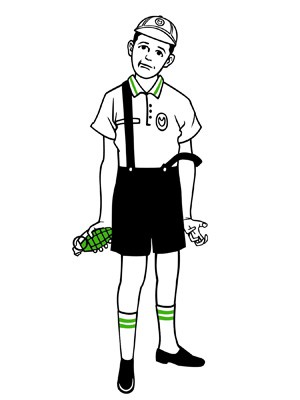
Other studies have confirmed it-the masculine role is a hazard to men’s health.
“Patriarchy forces boys into a state of profound emotional disconnection from self and others.”
The state of our hearts
Even more tragic than the state of our health is the state of our emotional lives. Noted psychologist Terrence Real estimates that almost half of all men suffer from some form of covert or overt depression. He attributes this to the way that men are socialized to deny their feelings.
Many of us trudge through life, feeling numb inside. Because of our social training, we have lost contact with our emotional lives. In fact, psychologist Ronald Levant estimates that close to 80 per cent of men suffer from some form of alexithymia-the inability to identify what one is feeling.
This alienation from one’s own feelings even extends to being cut off from physical feeling. Dr. Henrie Treadwell cites this as a significant cause of male mortality. “Becoming a man in this society means living with the pain, ignoring the pain,” explains Treadwell. “Quite simply, men … are largely out of sync with their own bodies.” Unable to feel their pain, men don’t get medical help when they need it. And they often die as a result.
Of course, a man who doesn’t know what he’s feeling can’t possibly express his real feelings to others. He can’t tell them what he wants, or who he really is, because he doesn’t know. These men live in profound isolation, cut off from their own hearts and the hearts of their family and friends. Men routinely fail at close relationships. Close to half of all marriages end in divorce-and 80 per cent of those divorces are initiated by the woman.
Out of touch with their inner lives, disconnected from others, many men fill their lives with addictive behavior. They become addicted to drugs or alcohol. They become addicted to their work. Or they become obsessed with television, the internet, sports, gambling, compulsive sex, acquiring things-anything to divert themselves from painful feelings. Other men numb their pain with chronic anger. Or they keep their feelings in check by obsessively controlling those around them. Many sink into the abyss of depression.
In sum, emotional disconnection kills many men, and condemns millions more to gray, lonely, distorted lives. It clearly doesn’t have to be this way. But to change things, men are going to have to come to terms with a concept that makes most red-blooded men cringe-_patriarchy_.
Patriarchy-cutting boys in half
Men miss a vital point in resenting feminist criticism: patriarchy has stolen our hearts and is killing us.
As psychologist Terrence Real has pointed out, patriarchy forces boys into a state of profound emotional disconnection from self and others. As they grow into men, this disconnection has tragic consequences for men’s health, their lives and their families.
Patriarchy is the age-old system where the father ruled over the family-where “the man is master of the house.” It’s a laddered society, with the father at the top, then the wife or eldest son, and everyone else on the rungs below.
In this system, relationships are about having “power over” others, not “being with” them. Males are on top. But even sons must defer to the father for years, before they get to the top. No one relates eye to eye, heart to heart.
To reach their destined place at the top, males must avoid being sensitive or in touch with their feelings. They must be strong and controlling without fail. Boys must don their father’s armour.
Historically, patriarchy likely developed because men and women faced different tasks. Men had to hunt, make war and protect the tribe. In contrast, women were left behind at the cave to nurture children and build a social community. As a result, patriarchal society assigned certain characteristics exclusively to men, including strength, power, anger, independence and control.
On the other hand, women bore the children, raised them, and kept the village going as a functioning community. As a result, society assigned quite a different set of characteristics exclusively to women, including the ability to create intimacy and emotional connection, kindness, patience, communication and relationship building.
Although both men and women can embody every one of the above characteristics, patriarchy demanded that people sacrifice important parts of themselves. Women were forced to sacrifice their strength and autonomy. Any woman who dared show such “masculine” characteristics was promptly condemned as a “bitch,” “nag,” “witch,” or “castrator.” Conversely, men were forced to suppress their emotional sensitivity. Any man showing a “feminine” characteristic was condemned as a “sissy,” “wimp,” or “pussy.”
Over the centuries, a profound human tragedy occurred. Men and women were cut in half. Women lost their voices-and men lost their hearts. As Sam Keen puts it, “Each gender is assigned half of the possible range of human virtues and vices… . Every man and every woman is half of a crippled whole.”
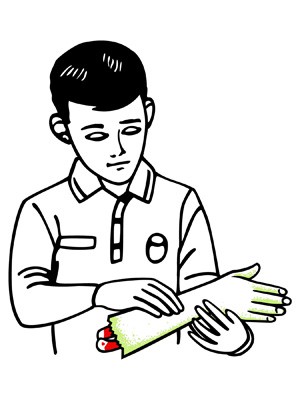
Patriarchy is obsolete-but lives on
At one time there might have been a reason for patriarchy’s harsh division of the human personality. But today we live in a far different world. Today’s society requires whole human beings. Modern families require women who can coach soccer and men who can change diapers. The same is true in the workplace. Modern work teams thrive when women are free to be assertive, and men free to be kind. Furthermore, we now know that individuals are far healthier if they can integrate both “masculine” and “feminine” traits. Society benefits when all people are free to realize their full potential.
Clearly, patriarchy is an outmoded social structure. The insensitive hierarchy that served primeval hunting parties and wartime armies is no longer necessary. But our evolutionary history still resonates. “Masculine” traits such as performance and control are still primarily assigned to males, while “feminine” traits such as empathy are still assigned to females.
With the rise of feminism, gender roles will inevitably continue to change. In recent decades many women have found their voice, and many men have gotten more in touch with their emotions. However, the old paradigms remain surprisingly strong, and in the militaristic, post-9/11 world are even gaining strength. As William Pollack has pointed out, even boys coming from “enlightened” neighborhoods still learn patriarchy’s rulebook at an early age. And this Boy Code is what still leaves most men “half of a crippled whole.”
Patriarchy’s rulebook
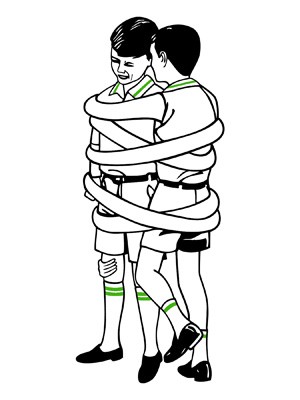
From the time he is about five, a boy is told to repress his feelings if he wants to be a “real boy.” In his 1999 book Real Boys, William Pollack identified the four great imperatives that society presses upon boys:
- Never show weakness. Men should be stoic and stable.
- No “sissy stuff.” Don’t express feelings or “feminine” dependence, warmth or empathy. Be cool. If you must show emotion, show anger.
- Give ‘em hell. Be tough, macho, take risks.
- Be a Big Wheel. Achieve status, dominance and power. There are only winners and losers-don’t be a loser.
We find these Boy Code messages everywhere in our culture-in music, movies, literature and television. Our culture is still dominated by the ideal of the man as stoic hero. From Rudolph Valentino to Humphrey Bogart, from John Wayne to Clint Eastwood, from Sylvester Stallone to Arnold Schwarzenegger, male heroes are expressionless, emotionless and dominant. Many, like Batman, Green Hornet, the Lone Ranger and Zorro, actually wear masks to hide their faces and feelings.
A classic example of the Boy Code in action is Lethal Weapon. This movie, like many others, teaches boys that it is actually better to kill than to feel. Suicidal over the death of his wife, policeman Mel Gibson can’t express his grief. Instead, he repeatedly toys with putting a loaded gun in his own mouth, then goes on a manic rampage, killing criminals. His only options are to kill others or kill himself. Processing his grief is not an option. Audiences cheer as he kills, rather than feels.
Thus, our culture teaches boys that it is unmanly to be in touch with their feelings. They are taught to be ashamed of feeling vulnerable, sad, anxious or lonely. They are taught that to be a man they must forgo feelings, even in relationships.
“Boys are taught to be ashamed of feeling vulnerable, sad, anxious or lonely.”
Putting on my father’s armour
As the boy suppresses his real self, he replaces it with a “false self” that fits the Code rules. This constructed self doesn’t allow itself tender feelings, or show them to others. It wears armour.
Pollack characterizes this false self as the “mask of masculinity”-“a mask that most boys and men wear to hide their true inner feelings, and to present to the world an image of male toughness, stoicism, and strength, when in fact they feel desperately alone and afraid.”
As boys, we dare friends to punch us in the stomach and then pretend it doesn’t hurt. We adopt the emotionally flat voice of a Bogart, a Schwarzenegger or Snoop Dogg. We mimic the unfeeling voice and gestures of the Marlboro Man, John Wayne, Mel Gibson and Eminem. Like Prometheus, we never cry, even when the eagle devours our flesh.
Boys hide their hearts because they’ve been brainwashed to believe that their hearts are shameful. Their sense of intrinsic worth-the self esteem that says that I have the right to be who I really am-has been pounded out of them.
The man thus begins a constant quest to prove his worth with a good job, big house, fast car, possessions, portfolio, athletic feats, trophy wife. Forgetting his inherent value as a human being, he begins to see himself as little more than a human doing. He is what he does. He becomes what he achieves. Like the Tin Man in The Wizard of Oz, he becomes a hollow man whose life is his work.
Two tragedies result. When achievement falters, such men don’t have a solid sense of self to fall back on. They’re only as good as their last race. The intense pressure on men to achieve is reflected in the health statistics.
The second and more fundamental tragedy begins much earlier, when the young man first accepts that he actually is the mask he projects. Pretending to be what he is not, pretending to feel what he doesn’t, he finally fools himself. At that moment he loses his most crucial relationship: his relationship with himself. Like most men, he becomes unable to identify his real feelings and needs.
Without that connection to self, the young man loses the ability to live his own life.
The sins of the father
It all starts with Dad. Boys learn from their fathers to abandon their hearts. Men are cut off from their emotions because they never saw their fathers express their inner feelings. For generations, fathers have passed down the mask and armour to their sons. Most fathers are either remote or angry with their sons. Shere Hite’s survey of 7,239 men showed that “almost no men” were close to their fathers as they grew up. Leading Australian family therapist Steve Biddulph confirms this, estimating that less than 10 per cent of men are friends with their fathers and see them as a source of emotional support. Of the remainder, Biddulph estimates that 30 per cent don’t speak to their fathers; 30 per cent have prickly or difficult/hostile relationships; and 30 per cent go through the motions of being good sons while discussing nothing deeper than lawnmowers.
Some young modern fathers are beginning to break the mold, choosing to be supportive and nurturing with their sons. But the general rule has been that a father doesn’t teach his son how to connect on an emotional level because the father himself is shut down emotionally. Instead, Dad passes on the Boy Code.
Such a father addresses his son from a height, treating him harshly or coldly. The son learns from this experience to treat his own inner child the same. He learns to speak harshly to himself, in the same voice that his father used. The son’s inner life becomes a place of harshness, coldness, sometimes cruelty. The ugliness of patriarchy is played out inside his head, as he wages a war against his true self.
Just as patriarchy brutalizes women, it brutalizes him. This is the cost of the father’s armour.
Becoming a kind father
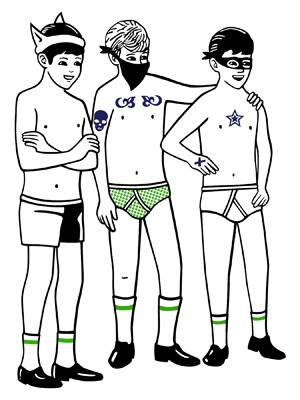
Our fathers tried to be heroes. They wanted us to be heroes too. But the life of a hero is, in the end, a tragedy. The armoured hero lives and dies alone. He is a stranger to his own son.
My own father was a harsh, hard-drinking, swearing, tattooed man’s man. He drilled the Boy Code into me, and insisted I wear the masculine armour. But in mid-life, I abandoned the armour and took off the mask. As I passed from hero to mortal, I began to feel again. After decades lost in man’s deep sleep, trapped in patriarchy’s tragic script, I re-established a relationship with myself.
On the dark and dangerous journey back to my own heart, I followed a few simple but profound steps:
- Saying goodbye to the patriarchal Harsh Father that was in my head, and turning off his criticisms.
- Becoming a Kind Father to myself, learning to encourage and nurture myself in the way that a healthy parent encourages his children.
- Learning to pay attention to what I’m feeling, and giving myself permission to experience it.
- Learning the joy and intimacy that come from speaking what I feel and listening attentively to others.
- Learning to not escape from feelings into anger.
- Learning to forgive myself and others.
As I followed this process, I forged a comfortable new relationship with myself. But that was not all. To my surprise, decades after his death, I rediscovered my father’s tender heart.
This essay is adapted from the first chapter of Calvin Sandborn’s book Becoming the Kind Father: A Son’s Journey, published in 2006 by New Society Press and reprinted with permission. Sandborn is Legal Director of the University of Victoria Environmental Law Clinic, and the father of three daughters.
About the illustrations
The images accompanying this article are selected from Daryl Vocat’s Pact for Adventure project. “Pact For Adventure,” Vocat writes, “is part of an ongoing exploration of childhood, morality, and social dynamics. It is a collection of serial images that together chronicle a world that belongs to boys. It hints at a narrative of defiance, confrontation, intimacy, and mystery.“In Pact for Adventure, characters arise from found, manipulated and redrawn Boy Scout illustrations. Removed from their environment, the boys are introduced to a world of ambiguity. Moving toward adulthood, they are left negotiating the space between the world they are from, and the world they have arrived in.
“These characters find freedom in theatrics. They imitate the world they live in, and work toward creating a subculture of their own. Unburdened by conventions, they become fierce, lips curl to grins, and they become outlaws. When no one is watching, they transform, staking claim to a world of their own.”
To view the entire series, go to www.darylvocat.com.
Further reading
I Don’t Want to Talk About It by Terrence Real. Fireside, 1998.
How Can I Get Through to You: Closing the Intimacy Gap Between Men and Women by Terrence Real. Scribner, 2002.
Real Boys by William Pollack. Owl, 1999.
The Courage to Raise Good Men by Olga Silverstein and Beth Rashbaum. Viking, 1994.
Beyond Anger: A Guide for Men by Thomas Harbin. Marlowe and Co., 2000
The Male Stress Syndrome by Georgia Witkin-Lanoil. Berkley, 1988


